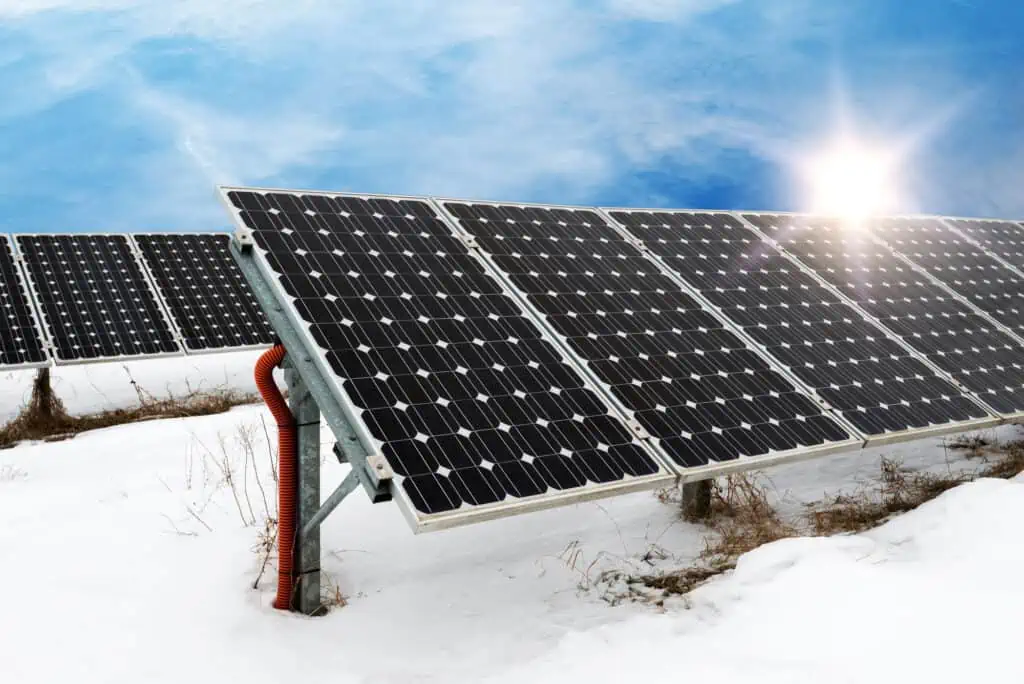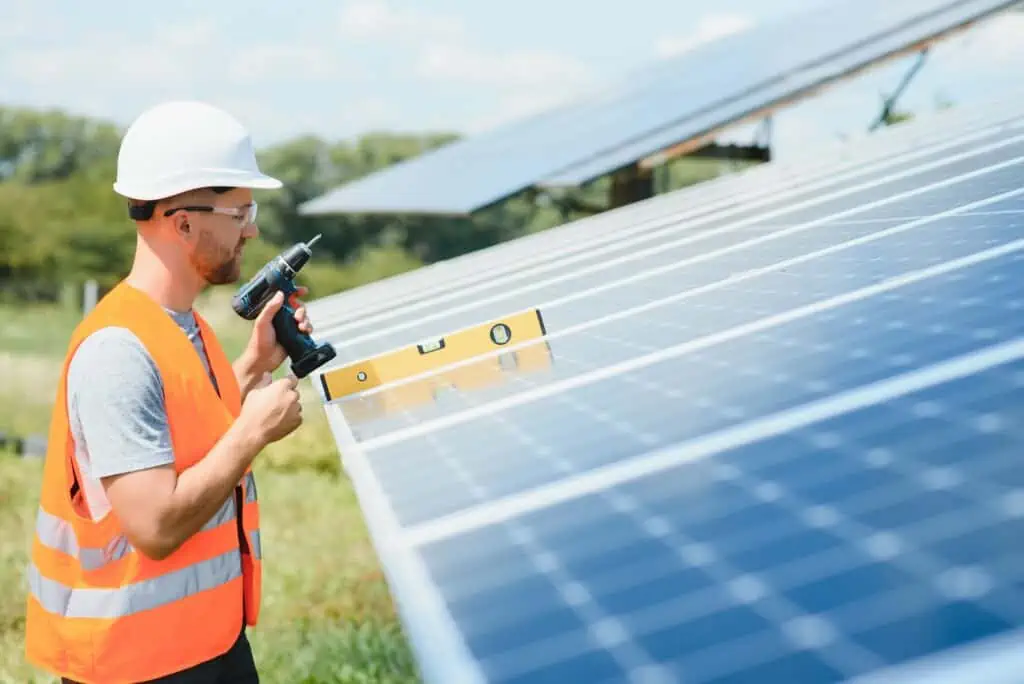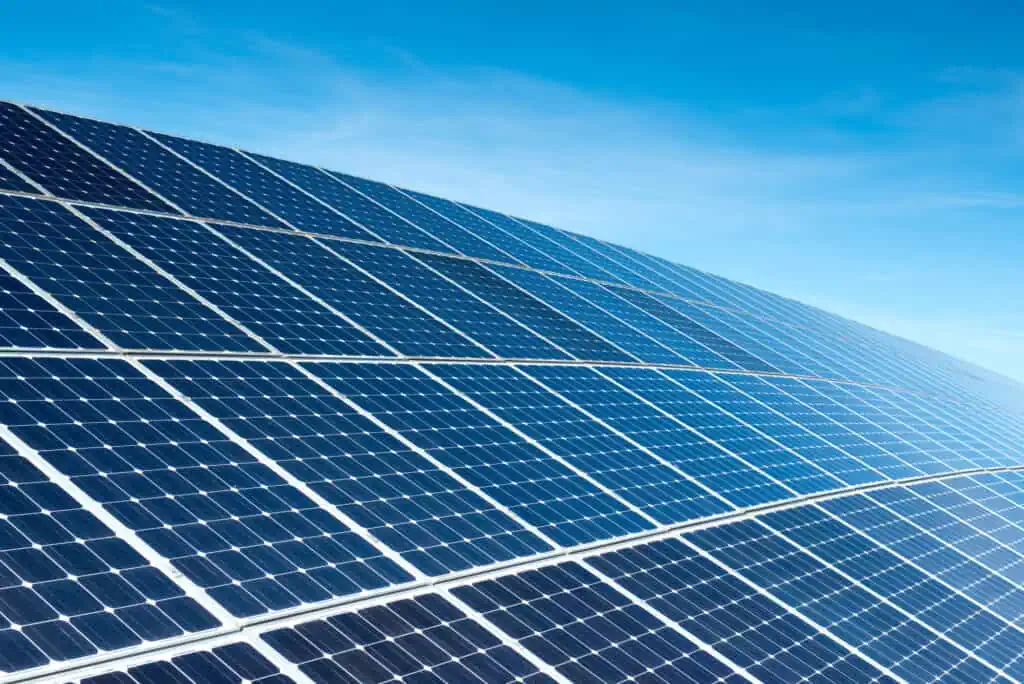Solar panels harness the power of the sun to generate electricity.
But they’re the subject of a question: Can these panels charge without direct sunlight?
This comprehensive article takes you through the science behind them. It will also tackle their charging efficiency in different settings.
Contents
- 1 The Spectrum of Sunlight
- 2 The Science Behind Solar Energy Charging
- 3 The Efficiency of Solar Panels in Different Settings
- 4 Factors That Can Influence Charging Efficiency
- 5 Technological Advancements Enhancing Solar Panel Efficiency
- 6 Real-world Applications and Case Studies
- 7 So, Can They Charge without Direct Sunlight?
- 8 Take the Next Step with Solar Comparison
The Spectrum of Sunlight
Sunlight is divided into direct sunlight and indirect sunlight.
Direct Sunlight
This is the light that reaches the surface without scattering or interference. It is the optimal form of sunlight for these panels.
Providing them with abundant energy to operate at maximum efficiency.
When exposed to direct sunlight, they receive a high intensity of photons. This results in a higher conversion of light into electricity.
Indirect Sunlight
This is composed of diffused or scattered light. Lights that reach the Earth’s surface due to atmospheric conditions or obstructions.
Diffuse sunlight occurs when sunlight is scattered by particles in the atmosphere. This scattered light does not have the same intensity as direct sunlight. It is also less concentrated.
The Science Behind Solar Energy Charging
The Photovoltaic Effect
The key technology is the photovoltaic (PV) effect. When solar cells are exposed to light, they generate electricity, a process known as the PV effect.
The Role of Sunlight in Solar Panel Charging
Sunlight is a crucial component in the charging of panels. The energy from sunlight—either direct or indirect—is captured by the solar cells and converted into electricity.
Direct Vs. Indirect Sunlight on Charging Efficiency
Direct sunlight’s unfiltered intensity enables these to maximize their energy output. This leads to higher charging efficiency.
Indirect sunlight presents a different story.
It does contain diffuse solar energy that doesn’t go unnoticed. Even though it doesn’t carry the same concentrated energy as direct sunlight.
They can harness this scattered energy and convert it into electricity. It ensures that panels remain functional and productive. Even in less-than-ideal lighting conditions.
The Efficiency of Solar Panels in Different Settings
Direct Sunlight
In direct sunlight, solar panels work their best. They absorb a lot of sunlight and convert it into a lot of electricity.
Indirect Sunlight or Diffused Light
Even on cloudy days, when only indirect sunlight is available, solar panels continue to charge, but less efficiently.
One study showed that, solar panels might still operate at 10-25% of their rated capacity. This depends on the specific panels and the degree of cloud cover.
Artificial Light
Solar panels can also generate power from artificial light sources such as incandescent bulbs. It demonstrates the panels’ ability to operate in diverse light conditions. Although, the energy output is typically lower than under sunlight.
Weathering It Out Different Weather Conditions
Solar panels can function under various weather conditions. Rain or shine, in summer or winter months, solar panels can generate power.
In fact, some panels may operate better in colder temperatures despite fewer daylight hours.
Factors That Can Influence Charging Efficiency
The Make of the Panel
The type and quality of a solar panel play a significant role in determining its charging efficiency. Like any other product, not all solar panels are created equal.
Some are made with superior materials and advanced technologies. These allow them to capture more sunlight and convert it into electricity more effectively.
These panels can often withstand various environmental conditions. They can also still produce a decent amount of energy. So, when choosing a solar panel, it’s important to consider its make and quality.
A better quality panel might cost a bit more, but it can provide more energy in the long run, making it a worthy investment.
Panel Positioning
Another important factor that influences the efficiency of solar panels is their positioning. The direction and angle at which a solar panel is installed can greatly affect how much sunlight it captures.
Ideally, solar panels should be placed in a position where they can catch as much sunlight as possible throughout the day. This means considering the path of the sun and adjusting the panels accordingly.
For example, in the Northern Hemisphere, panels are positioned southward to maximize exposure. Ensuring your solar panels are correctly positioned can significantly boost their energy output.
It can also boost the amount of solar electricity you can generate.
Environmental Factors
Environmental conditions also have an impact on solar panel charging efficiency.
Solar panels can work under shade and varying temperatures. But, these factors may reduce their energy generation.
For instance, solar panels might produce less energy on a very hot day because high temperatures can reduce their efficiency. Similarly, if a panel is under a shadow for a large part of the day, it won’t be able to capture as much sunlight.
When installing solar panels, it’s important to consider where they’ll be least affected by shade. It’s also important to consider if they’re able to operate optimally despite temperature changes.
Technological Advancements Enhancing Solar Panel Efficiency
The continuous advancements in solar technology are improving their efficiency. Cutting-edge developments can enhance the panels’ ability to capture and convert solar energy.
They can do this even in less-than-optimal light conditions.
These advancements include multi-junction solar cells, concentrator photovoltaics (CPV), and thin-film technology.
Real-world Applications and Case Studies
Despite the challenges, panels are still an effective source of renewable energy. From lighting up a home during a power outage to reducing electricity bills, solar panels provide a good solution.
For example, in Seattle, a city known for its cloudy weather, homes with panels still made 60-70% of the energy they would under full sunlight.
This shows the resilience and versatility of panels, even when the lighting conditions aren’t perfect.
So, Can They Charge without Direct Sunlight?
Indeed, the answer to our initial question is a resounding yes. Solar panels can charge and generate electricity. This is possible even when direct sunlight isn’t at its maximum intensity.
But do note, it’s important to note that their efficiency can vary in such situations.
These panels demonstrate their capability to generate electricity under a range of conditions. Whether they’re exposed to indirect sunlight or weather conditions, they still manage to produce a certain level of power.
It’s this ability to adapt and perform under various light sources. Those that underlines their value in our ever-evolving energy landscape.
Solar panels’ inherent resilience shines through. Despite the fluctuations in power output under these varying conditions.
They stand as testament to the rapid advancements in technology. Always evolving to optimize energy output across an array of environments.
The promise they hold for the future is immense. It’s a world where solar panels can deliver energy solutions, even under less-than-ideal conditions.
Emphasizing their ability to generate power regardless of intensity is not just an interesting fact. It underscores their pivotal role in the crucial transition towards greener energy solutions.
Take the Next Step with Solar Comparison
Exploring solar energy’s potential, we see it’s a powerful solution for a sustainable future.
Solar panels play a crucial role in harnessing this renewable resource. Whether in direct sunlight or not, they continue to function, contributing to our clean energy goals.
Here at Solar Comparison, we are your one-stop platform for all solar energy-related information. To delve deeper into the world of solar energy, browse through our collection of informative articles.
Each piece is made to educate, inform, and answer your questions about solar energy. As well as its technologies, and its practical applications.
If you still have unanswered questions about solar energy, don’t hesitate to reach out to us. Our team of solar experts is ready to provide personalized advice and guidance.
Lastly, if you’ve been considering making the switch to solar, now is the perfect time. There’s a whole world of solar solutions waiting for you.
Embrace the power of the sun, reduce your carbon footprint, and join the solar energy movement.




